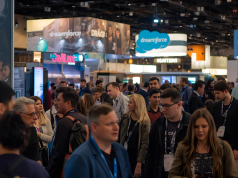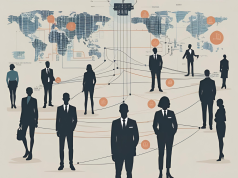As the dawn of a new technological era rises, the integration of artificial intelligence (AI) and automation into the workforce heralds a transformative period for jobs across the globe. The promises of increased efficiency, productivity, and even the creation of new job categories are tantalizing. However, alongside the optimism, there’s an imperative conversation that needs center stage: the potential impacts of these advancements on job availability and diversity, especially the implications for marginalized groups.
The specter of automation looms large over routine and manual jobs, raising concerns about the displacement of workers and the widening of socio-economic divides. Yet, it is within this challenge that an opportunity presents itself—an opportunity to reimagine the workforce in a way that’s not only technologically advanced but also fundamentally equitable. The question then becomes, how do we pivot from being passive witnesses to active architects of an inclusive future?
As we venture into this uncharted territory, it is paramount that we craft strategies to ensure that automation does not perpetuate or exacerbate existing inequalities. Proactive measures must be taken to create pathways for equitable access to the future jobs that AI will generate. This includes upskilling and reskilling initiatives, reform in education to align with the skills of the future, and a rigorous examination of the biases embedded within AI systems that could otherwise hinder diversity.
The role of diversity, inclusion, and equity (DIE) clubs within companies becomes increasingly significant. These entities can function as the conscience of corporations, ensuring that discussions about technology and automation consider the varied tapestry of society. DIE clubs can advocate for diversity audits, promote inclusive hiring practices, and foster a workplace culture that values every individual’s background and experiences. This collective effort is the safety net that can catch those at risk of being left behind by technological leaps.
Some organizations are already paving the way with innovative approaches to preparing their workforce for the future. From partnerships with educational institutions to develop targeted curriculums to creating internal development programs, these pioneers are demonstrating that a future where technology and diversity thrive together is possible. Their strategies lay the groundwork for a model that other organizations can emulate.
The narrative of AI and automation need not be one of fear and divisiveness; instead, it can be a tale of unity and progress where the synergy of diverse minds meets cutting-edge technology. This is a moment in history where the ethos of inclusion can shape the future of work for the betterment of all.
In conclusion, as AI and automation reshape the landscape of work, it is incumbent on every stakeholder in society to join the conversation and action. The advancements should lead to progress in efficiency and in constructing a truly diverse and inclusive society. The time is now to ensure that the future workforce reflects the rich diversity of our world, where each individual is valued, and where equity is the cornerstone of innovation. This blog is more than a discussion—it’s an invitation to build that future, together.
In the spirit of diversity, inclusion, and equity, let’s ensure technology becomes a bridge, not a barrier, to a more equitable world. Join us in this pivotal journey to make the future work for everyone.



























